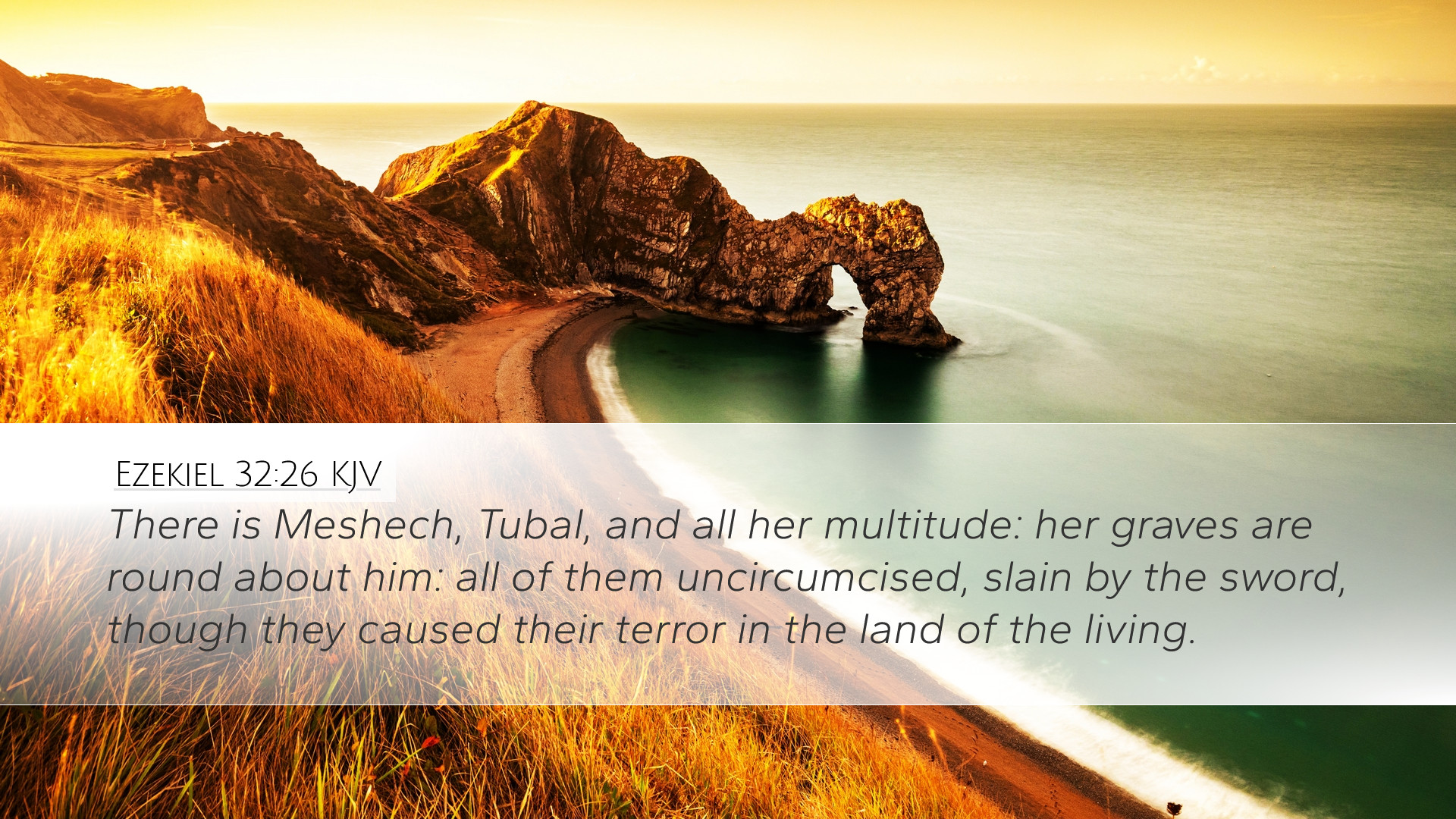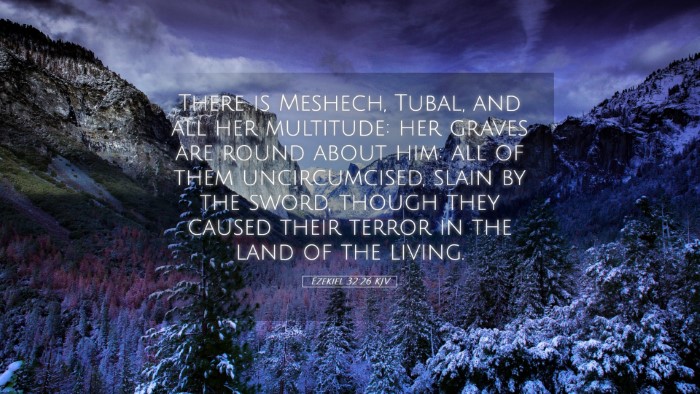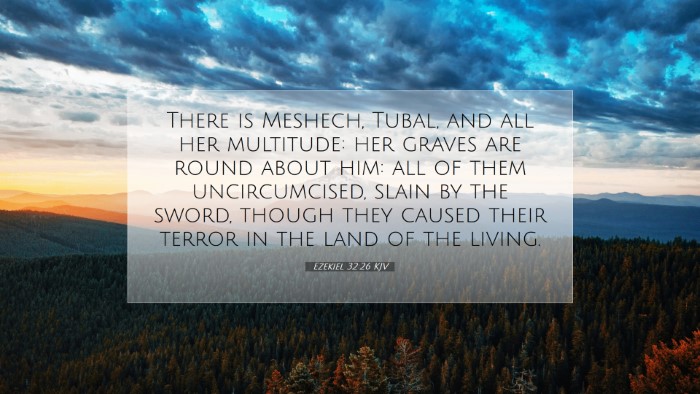Bible Commentary on Ezekiel 32:26
Ezekiel 32:26 states: "There is Meshech, Tubal, and all her multitude: her graves are round about her: all of them uncircumcised, slain by the sword: though their terror was caused in the land of the living."
This verse is part of a larger prophetic oracle against Egypt, where the prophet Ezekiel outlines the fate of nations in light of divine judgment.
Contextual Analysis
In the preceding chapters, Ezekiel focuses on the fall of Egypt and the consequences of its sins. Here, the mention of Meshech and Tubal, nations that are historically intertwined with the Assyrian and Babylonian empires, serves to emphasize the universal nature of God's judgment.
Insights from Public Domain Commentaries
Matthew Henry's Commentary
Matthew Henry notes that Meshech and Tubal symbolize nations that once held great power yet faced judgment due to their continuous rebellion against God.
He emphasizes the "uncircumcised" nature of these nations, indicative not only of a physical state but also representing a spiritual reality of separation from God.
Henry highlights that their graves "are round about her," indicating a thorough desolation and defeat, showing that those who oppose God will face dire consequences.
Albert Barnes' Notes
Barnes elaborates on the implications of "slain by the sword" as a metaphor for divine retribution. The "terror" evoked in the land of living is contrasted with the peace found in the graves, suggesting a transition from the living's chaos to the dead's peace, albeit for those who die in judgment.
He explains that this passage reflects God's decree against any nation that pursues wickedness, drawing attention to the complacency and false security that often precede such divine intervention.
Adam Clarke's Commentary
Clarke gives a historical perspective, noting that Meshech and Tubal were indeed significant players in the geopolitical landscape of Ezekiel's time. They serve as a representation of those who may appear strong but are ultimately powerless against the Almighty.
He suggests that this dire imagery serves to warn other nations, including Egypt, of the inevitable consequences of defiance against God's will. Clarke notes that the description of the dead paints a vivid image that communicates the reality of their judgment and the absence of life—a stark reminder of mortality and accountability.
Theological Implications
-
The Sovereignty of God: The passage affirms God's ultimate authority over nations and highlights His ability to bring judgment upon both the powerful and the weak. It teaches that no one is above divine judgment.
-
The Nature of Judgment: The intent behind the grave imagery serves as a profound reflection on the state of those outside of God's covenant. The uncircumcised are portrayed as lacking in the necessary covenant relationship that brings forth spiritual life and blessings.
-
Invitation to Repentance: Implicit within this oracle is a call to nations, including the current hearers of Ezekiel’s message, to recognize and repent from their sinful ways, lest they meet a similar fate.
Practical Applications for Today
For contemporary readers—be they pastors, students, or scholars—Ezekiel 32:26 serves as a poignant reminder of the consequences that can follow national and personal sin.
The passage communicates essential truths about God's unwavering justice and the need for humility before His sovereign will.
It invites reflection on how God's judgment operates in both history and individual lives, urging a response of obedience, repentance, and faithfulness.
Conclusion
As we contemplate Ezekiel 32:26, we see a rich tapestry woven with themes of judgment, divine sovereignty, historical narratives, and spiritual truths.
Each commentary enriches our understanding, reminding us to approach God with reverence and to uphold His standards of righteousness in our personal and communal lives. May this reflection challenge us to seek deeper in our relationship with God and to heed the lessons of history that Scripture presents.


